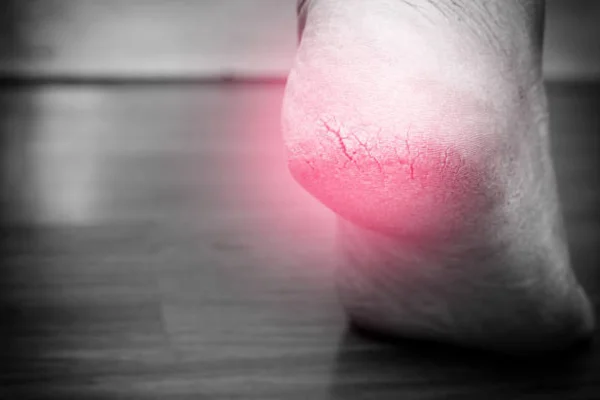Heel pain a common complaint that can stop you in your tracks. But what if it’s more than just a strain or injury? The thought might send a shiver down your spine: could this pain be a sign of cancer? While often linked to less severe causes, the possibility raises eyebrows and curiosity. This discussion ventures into the rare but significant connection between heel pain and cancer, shedding light on when to pay attention to what your body might be signaling. Dive in, and let’s unravel the mysteries of heel pain together, ensuring you’re informed and ready to act on this crucial health insight.
Is Heel Pain A Sign Of Cancer

Heel pain can manifest in various forms, ranging from a mild annoyance to a severe impairment that affects daily activities. Common conditions associated with heel pain include plantar fasciitis, Achilles tendinitis, and bursitis. These conditions are often related to mechanical or overuse injuries rather than systemic health issues.
The Cancer Connection
When it comes to associating heel pain with cancer, it’s crucial to understand that cancer is not a common cause of heel pain. However, in rare instances, a malignancy can lead to symptoms in the feet, including the heels. Two primary types of cancer that could theoretically manifest as heel pain are bone cancer and metastatic cancer.
Bone Cancer
Bone cancer in the heel is exceedingly rare but possible. Osteosarcoma, chondrosarcoma, and Ewing sarcoma are types of bone cancers that could, in theory, affect the heel bone (calcaneus). Symptoms might include pain, swelling, and a noticeable mass or lump.
Metastatic Cancer
More commonly, if cancer is causing heel pain, it would likely be due to metastasis from another part of the body. Certain cancers, such as breast, lung, and prostate, have been known to spread to the bones, potentially affecting the heel.
Symptoms to Watch For
While heel pain alone is unlikely to be a sign of cancer, certain symptoms accompanying the pain could warrant further investigation, including:
- Unexplained weight loss
- Night pain or pain at rest
- A noticeable lump or mass in or around the heel
- Changes in skin color or texture over the heel
- A history of cancer elsewhere in the body
Diagnosis and Treatment
Diagnosing the cause of heel pain typically involves a comprehensive medical history, physical examination, and possibly imaging tests such as X-rays, MRIs, or CT scans. These diagnostic tools can help distinguish between mechanical causes of pain and more serious conditions like cancer.
Treatment for heel pain depends on the underlying cause. For most non-cancer-related heel issues, conservative treatments such as rest, ice, physical therapy, and orthotic devices are effective. However, if cancer is suspected or diagnosed, treatment will shift focus to oncological management, which may include surgery, chemotherapy, radiation therapy, or targeted therapies depending on the type and stage of cancer.
The Importance of Professional Evaluation
It’s essential to consult healthcare professionals if you experience persistent or severe heel pain, especially if accompanied by other concerning symptoms. Early detection and treatment are crucial for managing both benign conditions and more serious diseases like cancer.
Prevention and Awareness
While not all cases of heel pain can be prevented, maintaining a healthy lifestyle, wearing appropriate footwear, and addressing any foot or ankle issues promptly can reduce the risk of developing painful conditions. Awareness of the potential, though rare, link between heel pain and cancer underscores the importance of attentive healthcare practices.
Conclusion
While the query Is Heel Pain A Sign Of Cancer might alarm many, it’s reassuring to know that cancer is a rare cause behind this common ailment. However, awareness and vigilance regarding unusual symptoms. Consulting healthcare professionals for persistent or severe heel pain ensures early detection and treatment, whether the cause is benign or something more serious. Remember, your health and well-being are paramount.

